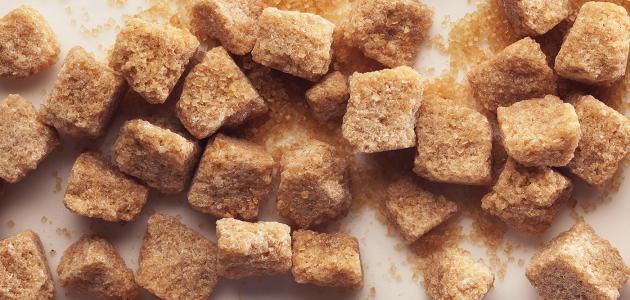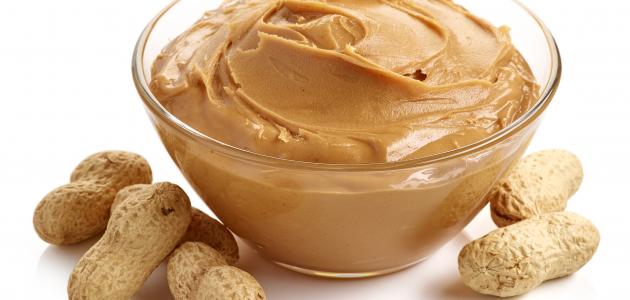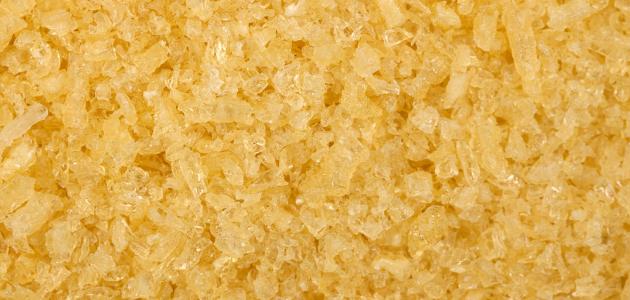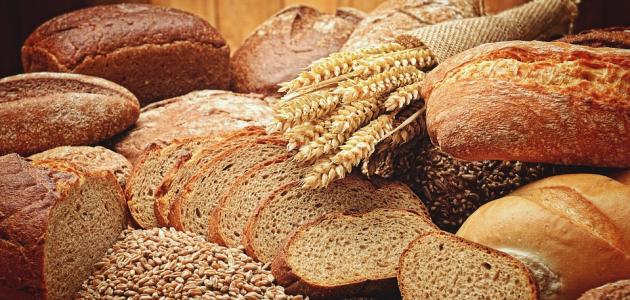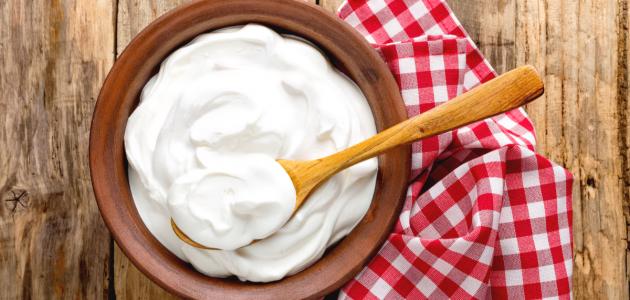Contents
Brown sugar
Sugar is known to be a natural ingredient that has been used as a part of the human diet for thousands of years. Although there are many types of sugar, white sugar and brown sugar are among the most common types, [1]Brown sugar is a sweetener made from sugar cane, which is scientifically known as Saccharum Officinarum, and brown sugar is similar to white sugar; However, it contains different quantities of molasses, and brown sugar can be available repeatedly , which is the type usually found in shops and is available in its natural, unrefined form, and its colors vary between light or dark brown, and light brown sugar is distinguished by its color and taste. Similar to caramel, and the two types are made by refining white sugar and adding some molasses to it. However, the quantities of molasses are higher in dark sugar compared to the light type, which gives it a darker color and a stronger taste, [2]Brown sugar differs from white in that it results from a single refining process of raw sugar cane, and this process produces granulated sugar in addition to between 5% to 10% of molasses, while white sugar results from multiple refining processes of brown sugar. [3]
To see the general benefits and harms of sugar, you can read the article on the benefits and harms of sugar .
The nutritional value of brown sugar
The following table shows the most important nutrients in a teaspoon of brown sugar, or 4.6 grams of it: [4]
| The food component | Nutritional value |
|---|---|
| water | 0.062 ml |
| Calories | 17.5 calories |
| Protein | 0.006 g |
| Carbohydrates | 4.51 grams |
| Sugars | 4.46 grams |
| Sucrose | 4.35 grams |
| Glucose | 0.062 g |
| Fructose | 0.051 g |
| Lactose | 0 gr |
| Calcium | 3.82 milligrams |
| Iron | 0.033 milligrams |
| magnesium | 0.414 milligram |
| Phosphorous | 0.184 milligram |
| Potassium | 6.12 milligrams |
| Sodium | 1.29 milligrams |
| Zinc | 0.001 milligrams |
| Copper | 0.002 milligrams |
| Manganese | 0.003 milligrams |
| Selenium | 0.055 mcg |
| Folate | 0.046 mcg |
The benefits of brown sugar
Brown sugar has many good properties, including the following:
- Good source of energy; Brown sugar is one of the simple carbohydrates that provide energy quickly to the body and the brain, or what is known as glucose , where glucose is the preferred energy source for the brain, [2] However, complex sugars are the best energy option compared to simple sugars because they raise glucose levels over longer periods of time. Thus, it provides energy for a longer period of time than simple carbohydrates. [5]
- Content of minerals; As brown sugar contains a higher percentage of some minerals such as calcium , iron, and potassium compared to white sugar, however, brown sugar is not an essential source of vitamins and minerals, as the quantities of these elements remain low in it, especially when consumed in healthy quantities. [1]
- Its multiple uses; Brown sugar is used to add flavors, improve the texture of baked goods, and add color to it, and it is also a source of energy for the yeast used in baking, and it contributes to balancing the acidity of some foods, such as tomato sauce and other sauces. [6]
Damages of sugar
Brown sugar does not contain more benefits than white sugar, as the best option for health is to reduce the consumption of sugar, regardless of its color and type, [3] as sugars in general contain many harms, including the following:
- The effect on the various organs of the body: Eating sugars of all kinds in large quantities can affect the body's organs as follows:
- Excessive intake of sugar can lead to an increase in insulin levels in the blood, which may affect the arteries in all parts of the body, and thus may cause their walls to become inflamed, thickened, and hardened, leading to heart fatigue, and this is associated with an increased risk of heart diseases such as heart failure Heart attacks, strokes, [7] It is also believed that eating high amounts of sugars can cause liver fatigue, as the liver metabolizes sugars by converting dietary carbohydrates into fat, and over time this may lead to a large accumulation of fat, which may increase Risk of developing fatty liver disease, which is a contributing factor to diabetes and this may increase the risk of heart disease. [8]
- Added sugar contains high amounts of fructose, as excessive intake of fructose can lead to liver damage, as fructose turns into fats when it is broken down in the liver, which may increase the accumulation of fat in the liver and the risk of non-alcoholic fatty liver disease , in addition to an increased risk of non-alcoholic steatohepatitis, which is a scarring of the liver that may cut off the blood supply to the liver, and in some cases it may develop causing cirrhosis, and therefore the patient may need a liver transplant. [7]
- Excessive intake of sugars can cause the body to stop responding to insulin properly and the pancreas to start producing more insulin . This stresses the pancreas and raises blood sugar levels, thus increasing the risk of type 2 diabetes and heart disease. [7]
- Eating large amounts of sugar by diabetics causes damage to their kidneys, as the kidneys play an important role in filtering blood, and as soon as blood sugar levels reach a certain level, the kidneys begin to excrete the excess sugar outside the body through urine, and failure to treat diabetes in a way Healthy kidneys cause damage to the kidneys, which prevents them from performing their function in filtering waste products in the blood, and this can also increase the risk of developing kidney failure . [7]
- Increased risk of obesity and weight gain: Excessive intake of sugars may cause weight gain, as sugary foods and drinks contain a large number of calories, and eating large quantities of these foods may lead to weight gain even with regular exercise, and there is strong evidence It shows that excessive sugary foods are the main cause of weight gain, [5] in addition to that sugary foods such as chocolate, biscuits, and cakes usually contain fats that eating large quantities of them can lead to weight gain or obesity due to their high calorie content, [9]And because the body digests foods that contain added sugars faster, the feeling of satiety does not last for long, which increases the intake of foods and calories during the day, and there is some evidence indicating that sugar can affect the control of hunger by affecting The hormone leptin - the hormone responsible for regulating the feeling of hunger by determining the energy the body needs - and inhibiting the action of this hormone can lead to weight gain and obesity, and it should be noted that sugar is not the only cause of weight gain or obesity, but rather one of several reasons. Obesity or being overweight is usually the result of several common factors related to diet, physical activity, genetic factors, in addition to social and environmental factors, yet limiting the intake of sugar is one of the simplest ways to prevent weight gain. [10]
- Increased risk of developing type 2 diabetes: although eating sugars is not a direct cause of type 2 diabetes; However, as mentioned previously, eating sugars contributes to weight gain, as sugary foods and drinks contain large amounts of calories, and weight gain increases the risk of developing type 2 diabetes . [11]
- The effect on mental health: As a diet high in added sugars and processed foods may increase the risk of depression, while a healthy diet may help improve mood, [12] a study published in Scientific Reports in 2017 showed that reducing Eating sugary foods and drinks is linked to improved mental health. [13]
- Increased risk of tooth decay: There are many factors that cause tooth decay, which include genetics, the formation and flow of saliva, and other sugars and carbohydrates such as starchy foods play a role in tooth decay, as the bacteria on the teeth feed on these carbohydrates, in addition to making acids that You analyze the teeth that cause decay, and it is worth noting that a lot of snacks that contain carbohydrates, especially those that stick to the teeth, may increase the chance of tooth decay. [9]
References
- ^ A b by Rudy Mawer (7-6-2019), "Brown White Town vs. the Sugar the Sugar: What ' 's The Difference?" , Www.healthline.com , Retrieved 6-8-2020. Edited.
- ^ A b of Malia Frey (13-7-2020), "Brown And the Sugar Nutrition Facts Pets Health Benefits" , Www.verywellfit.com , Retrieved 6-8-2020. Edited.
- ^ A b "Is brown sugar a healthier alternative to white sugar?" , www.health24.com , 14-8-2017, Retrieved 6-8-2020. Edited.
- ↑ "Sugars, brown" , fdc.nal.usda.gov , 4-1-2019, Retrieved 6-8-2020. Edited.
- ^ A b Aaron 's Kandola (14-5-2019), "What ' To Know About Simple And Complex carbs are " , www.medicalnewstoday.com The , Retrieved 6-8-2020. Edited.
- ↑ Kris Sollid (29-9-2009), “Questions and Answers About Sugars” , www.foodinsight.org , Retrieved 6-8-2020. Edited.
- ^ A b t w "How Does Too Much Sugar Affect Your Body?" , www.webmd.com , 17-12-2019, Retrieved 7-8-2020. Edited.
- ↑ "The sweet danger of sugar" , www.health.harvard.edu , 2017, Retrieved 7-8-2020. Edited.
- ^ A b " the Sugar" , Www.betterhealth.vic.gov.au , Retrieved 7-8-2020. Edited.
- ↑ Aaron Kandola (2-4-2019), "5 Reasons Why Sugar Is Bad For You" , www.medicalnewstoday.com , Retrieved 7-8-2020. Edited.
- ↑ "Does sugar cause diabetes?" , www.diabetes.org.uk , Retrieved 7-8-2020. Edited.
- ↑ Jillian Kubala (3-6-2018), "11 Reasons Why Too Much Sugar Is Bad for You" , www.healthline.com , Retrieved 7-8-2020. Edited.
- ↑ Anika Knüppel, Martin Shipley, Clare Llewellyn, And Other (2017), “Sugar intake from sweet food and beverages, common mental disorder and depression: prospective findings from the Whitehall II study” , Scientific reports , Issue 1, Folder 7, Page 1-10. Edited.
